The Syrian Immigrant Who’s Building Canada’s Biggest Car Care Platform
"The opportunities are here. And we’re just getting started."
Please forward this to ONE friend today and tell them to subscribe here.Abdullah Sharief arrived in Canada in 2018 with $2,000 in his pocket and a steely determination to build a new life. He had just turned 21.
Fast-forward to 2025. He’s co-founded Panda Hub, a Toronto-based mobile car-detailing company, with Reza Ahmadi. They’re valued at over $60 million, with operations in Ontario, British Columbia, and 11 U.S. states. It’s a success story that sounds neat and tidy in retrospect; immigrant arrives Canada, works hard, builds company.
But I think that trope simplifies Abdullah’s journey through Canada so far. It’s the story of an individual who adapts but doesn’t compromise on who they are and what they stand for. It’s a story about the opportunities Canada offers immigrants to rebuild their lives and the ripple effects these individuals have on our economy and communities.
Verse One: Moving to Canada
Abdullah grew up in Saudi Arabia and then moved to Turkey to study medicine. But the outbreak of the Syrian war in March 2011 changed everything. “The war made it nearly impossible for Syrians like myself to build a stable future or seek opportunities abroad,” he says. “With travel restrictions and uncertainty surrounding every decision, I knew I needed to find a place where I could start over.”
Canada was one of the few countries opening its doors to Syrians caught up in the resulting passport and status limbo. And for Abdullah, the opportunity to move to Canada meant not just a chance to escape instability, but the possibility of starting fresh in a country known for its openness and diversity.
Then there was Canada’s proximity to the United States. “I’ve always considered myself a visionary and an entrepreneur at heart, someone who thrives on thinking big. Getting an opportunity to move to a country next to the largest economy in the world played an important role in my decision. Being here allows me to dream bigger, pursue opportunities at scale, and build something meaningful with the potential to grow beyond borders,” he says.
His first night in Canada? Unsurprisingly calm. “My cousins picked me up from the airport. And my mindset was simple: I’m here now. And I’m ready to move forward,” he says.
That mindset got Abdullah through his first job in Canada: door-to-door sales. It’s the kind of job that breaks most people, especially new immigrants. There are the cultural codes you don’t know, plus you’re already self-conscious about your accent, grammar, and fluency. Now you have to convince strangers in your second (or third) language while they’re looking for any excuse to shut the door.
Not Abdullah. “That job taught me resilience, how to handle rejection, discipline, and how to connect with people,” he says. Skills he was going to need in the future.
Verse Two: The Businesses Before the Business
After his time as a salesman, Abdullah tried his hand at e-commerce. Not enough capital, so scaling was difficult. Then he started a marketing agency focused on gyms and martial arts studios. The agency gained some traction, but then COVID-19 hit; those businesses shut down and he lost nearly all his clients overnight.
One year later, Abdullah and Reza launched Panda Hub.
“The idea for Panda Hub came from a clear frustration we saw in the industry. Booking a car detailing service was outdated and inconvenient. Customers often dealt with unanswered calls, back-and-forth scheduling, and a lack of reliable options,” he says
Plus, it seemed the industry hadn’t caught up with the modern expectation of convenience. The solution seemed obvious to them: make car care as simple as booking an Uber. “We wanted to bring the automotive service industry up to the standard of convenience people now expect in every other area of life,” he continues.
Verse Three: Staying Grounded
There are a bunch of other impressions (really, praises) of a similar nature I could name. But what struck me most about Abdullah is how he’s always focused on the present, always focused on the work he needs to do to guarantee his dream future.
I asked him about his proudest ‘against all odds’ moment, but he pushed back on that premise. “I don’t really think in terms of ‘against all odds’ moments,” he says. “My mindset is always focused on the present and on building what comes next. I’m in founder mode; there’s a goal ahead, and my energy goes into reaching it, not reflecting on how far I’ve come.”
And I didn’t walk away from the conversation thinking this was false modesty or immigrant humility.
“I don’t view small milestones as reasons to slow down or settle. Celebrating too much along the way tricks the mind into thinking you’ve already made it, when in reality the real work is still ahead,” he continues.
Then, he uses a sports metaphor to land his point: “Right now, we’ve made it to the playoffs, but the championship is still out there. For me, that ‘championship’ is building Panda Hub into a company with a major exit or IPO. Until then, it’s about staying focused, working hard, and pushing forward. When that day comes, that’s when I’ll sit back and celebrate. Until then, it’s all about the grind.”
Verse Four: The Canadian Advantage (and Disadvantage)
Building a business as a newcomer to Canada usually means unlearning and relearning the unspoken rules that guide the business world. But Abdullah had an advantage. Canada was his first experience with entrepreneurship.
“For me, Canada has simply been the environment where I’ve learned everything about entrepreneurship, and I’ve adapted to the way things work here as the standard,” he says.
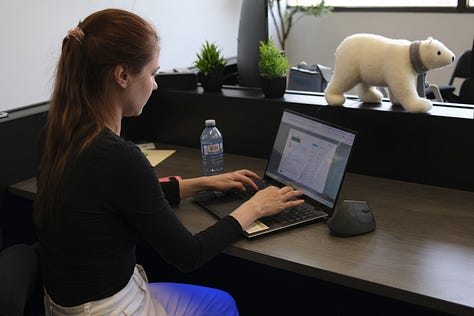
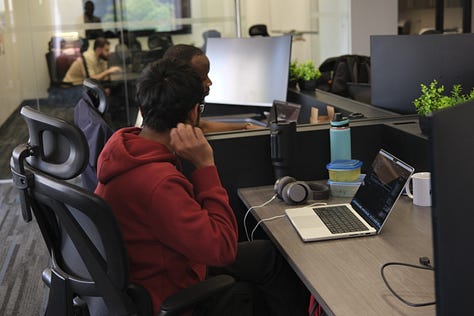
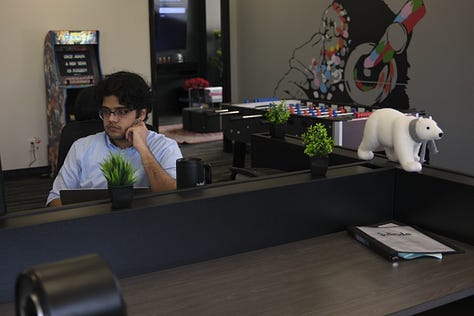
But he thinks there’s still room for improvement. When I asked him the one thing he’d tell Prime Minister Mark Carney about how Canada could better support the entrepreneurial potential of newcomers if he had five minutes with him, he didn’t hold back:
“Canada needs to become far more pro-business to unlock the entrepreneurial potential of newcomers. We’re one of the richest countries in the world in terms of natural resources and talent, but we’re not managed in a way that helps businesses truly thrive. There are too many inefficiencies holding companies back, and we risk losing ground to places like the U.S. that move faster and support entrepreneurs more effectively.”
I think you’d agree with that. Newcomers bring vision, resilience, and drive, but they need an environment where policies, infrastructure, and leadership support growth. If Canada wants more success stories, it has to focus on building the right foundations so entrepreneurs can scale here, not somewhere else.
Verse Five: Panda Hub Is Just Getting Started
Today, Panda Hub is growing fast. Abdullah, Reza, and the team have got big plans. But what excites him most about the future is the chance to “continue to build a great product that truly serves both our customers and our pros. The vision is to grow Panda Hub into a major company, a marketplace with the scale and impact to one day be listed on the stock market.”
When asked if immigrants make good entrepreneurs, he provides a nuanced answer:
“Many immigrants do make strong entrepreneurs, especially younger ones who arrive in their early or mid-20s with the drive to build something new. But at the same time, it’s not universal; every culture and community has both driven people and complacent ones. In the end, it doesn’t come down to being an immigrant; it comes down to the individual. Entrepreneurship is about mindset, determination, and the willingness to take risks and create opportunities.”
Looking back, what advice would he give his younger self? “Don’t overthink things. Just keep moving forward, believe in yourself, and trust the process.”
And the one piece of advice he wishes someone gave him before launching Panda Hub? “Master communication and the skill of hiring great people. Everything else in business can be learned along the way, but being able to communicate effectively and bring A-players onto your team is what truly makes the difference. If I had understood just how critical those two skills are from the start, I would have focused on them much earlier. Thankfully, my co-founder has been a huge support in that area, but it’s still the lesson I value most now.”
Abdullah left behind two and a half years of studying to become a doctor to immigrate to Canada. He brought nothing material, just a readiness to adapt. Seven years later, he’s built a business that could transform an entire industry.
Not bad for someone who’s still just getting started.
If you’d like to support the writing of these sorts of stories, consider buying me a coffee.



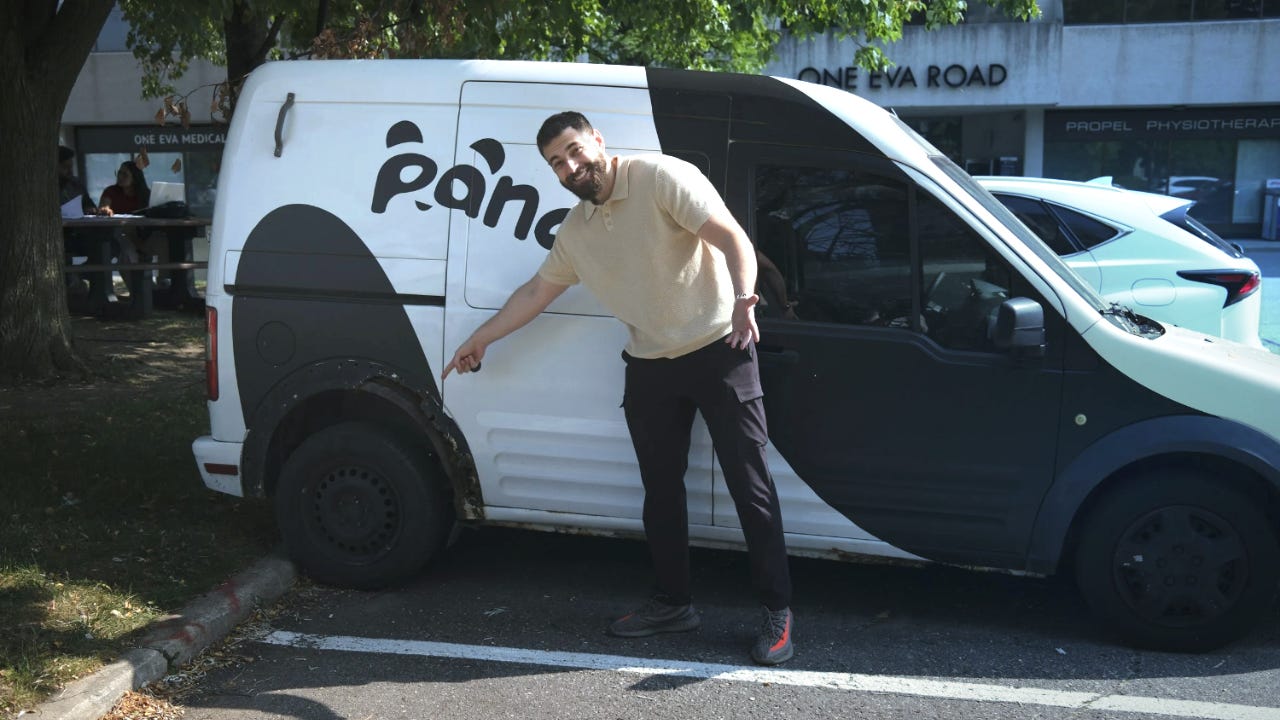
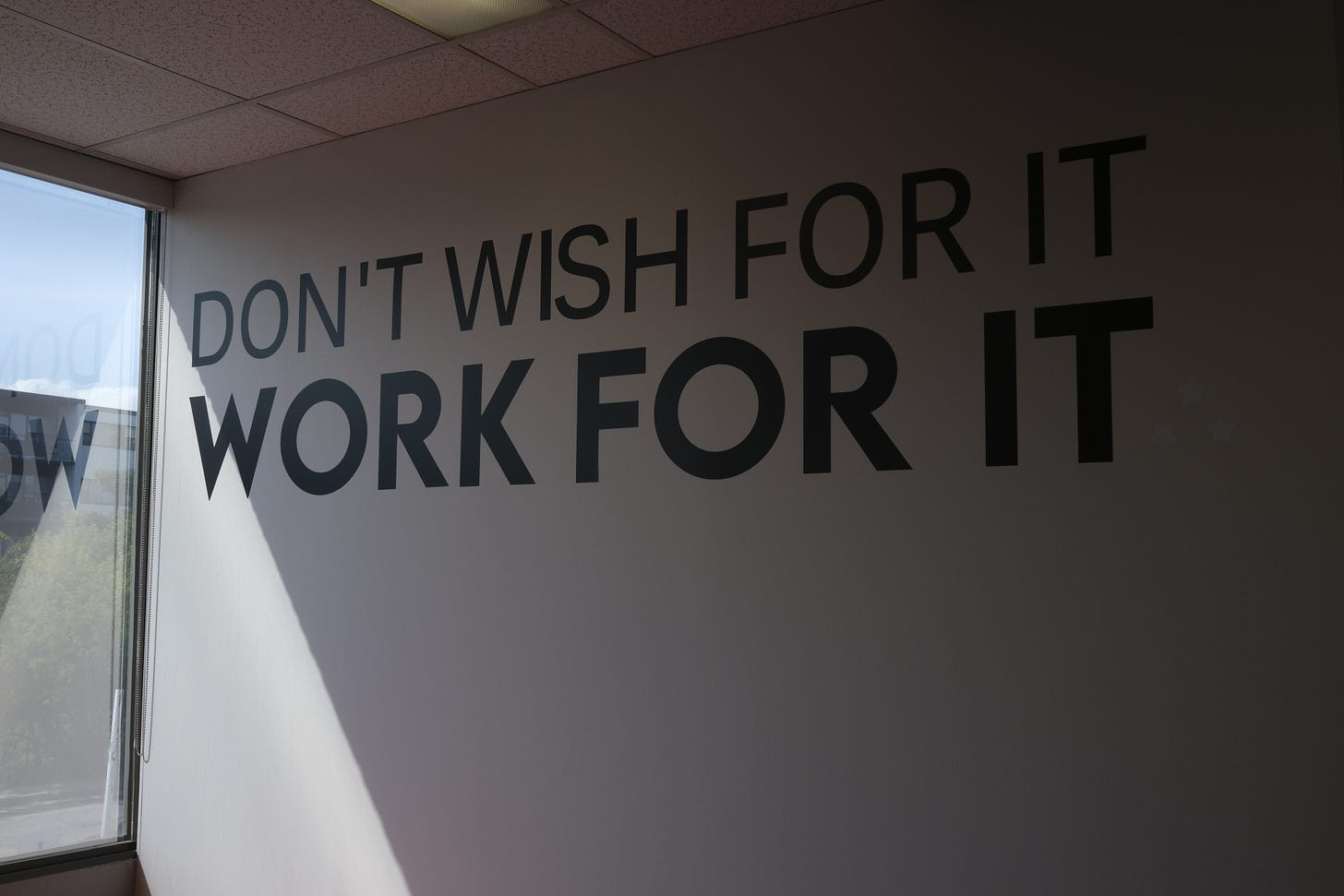



Wonderful Story, I've been following Panda Hub for a little over a year now, and i'm happy to learn more about the founder